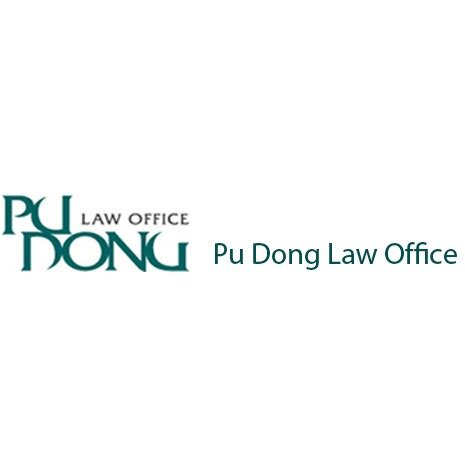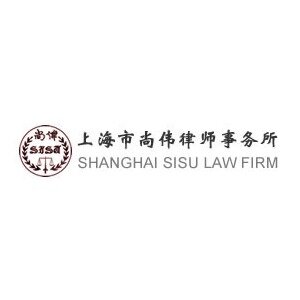Best Faith-Based Law Lawyers in China
Share your needs with us, get contacted by law firms.
Free. Takes 2 min.
Or refine your search by selecting a city:
List of the best lawyers in China
About Faith-Based Law in China
Faith-Based Law in China encompasses legal principles and regulations that govern religious practices and organizations. The Chinese government maintains a secular state, with regulations designed to ensure that religious activities contribute to social harmony, economic development, and national unity. The Law on the Management of Religious Affairs is a central piece of legislation that outlines the extent and limitations of religious activities, the establishment of religious entities, and the rights and obligations of religious followers.
Why You May Need a Lawyer
Engaging a lawyer experienced in Faith-Based Law in China can be crucial in various situations. These include setting up a religious organization, resolving disputes related to religious practices, negotiating land and property use for religious purposes, and ensuring compliance with local and national regulations. Legal advice is often sought to navigate the complexities of secular influence on religious freedom, to defend against alleged breaches of the Religious Affairs regulations, or to advocate for religious rights in educational and workplace settings.
Local Laws Overview
The local laws in China relevant to Faith-Based Law focus heavily on regulation and oversight of religious activities. Key aspects include:
- Registration Requirements: All religious groups must register with the government to conduct religious activities legally.
- Permissible Activities: The government outlines which religious activities are allowed and requires specific approvals for public worship and religious education.
- Foreign Involvement: Restrictions are in place to manage foreign influence on domestic religious affairs, impacting the ability of overseas entities to interact with local religious groups.
- Property Rights: Laws regarding land and property often intersect with religious activities, especially concerning the construction of places of worship.
- Censorship and Control: Publications and dissemination of religious materials are closely monitored and regulated.
Frequently Asked Questions
Can I freely practice my religion in China?
Yes, but within the confines of laws that regulate religious freedoms. All religious activities must conform with state regulations, and unregistered religious groups may face restrictions.
How can a religious organization become legally recognized?
Religious organizations must apply for registration with the State Administration for Religious Affairs or its local bureaus, demonstrating adherence to the regulatory requirements.
Are there specific laws regarding religious education?
Yes, religious education is strictly controlled and typically restricted to property owned by registered religious organizations. Unauthorized religious education is illegal.
What if my religious organization receives foreign donations?
Foreign donations must be reported to and approved by government authorities, ensuring they comply with laws concerning foreign influence.
What legal recourse do I have against religious discrimination?
Legal protection against discrimination is available, but cases relating to religion are often handled with additional scrutiny to ensure harmony and unity.
Can foreign religious organizations operate in China?
Foreign religious organizations can operate in a limited capacity under stringent regulations, often requiring partnerships with Chinese religious institutions.
Are there laws concerning religious dress in public and private institutions?
There are no specific national laws prohibiting religious dress, but local rules and institutional regulations can vary.
How does Chinese law impact online religious activities?
Online religious activities are subject to Internet regulations and the oversight of religious content, requiring compliance with censorship laws.
What is the legal process in case of a dispute involving faith-based matters?
Disputes are typically resolved through mediation first, failing which they may proceed to the courts which will apply relevant civil, administrative, or criminal laws.
Can religious organizations own property in China?
Yes, registered religious organizations can own land and property, but the process of acquisition and ownership is subject to scrutiny and must comply with property laws.
Additional Resources
Individuals seeking further understanding and resources can contact the State Administration for Religious Affairs, seek guidance from legal advocacy groups focusing on religious freedom, or consult with local religious associations. Additionally, legal publications and scholarly articles on Chinese faith-based laws may offer further insights.
Next Steps
If you require legal assistance in Faith-Based Law, consider these steps:
- Research and identify experienced legal professionals specializing in religious law.
- Prepare documentation relevant to your inquiry or case, such as registration papers, contracts, or correspondence with authorities.
- Schedule consultations to discuss your situation, obtaining legal interpretations and advice tailored to your needs.
- Engage a lawyer to represent your case with government bodies or in court if necessary.
Lawzana helps you find the best lawyers and law firms in China through a curated and pre-screened list of qualified legal professionals. Our platform offers rankings and detailed profiles of attorneys and law firms, allowing you to compare based on practice areas, including Faith-Based Law, experience, and client feedback.
Each profile includes a description of the firm's areas of practice, client reviews, team members and partners, year of establishment, spoken languages, office locations, contact information, social media presence, and any published articles or resources. Most firms on our platform speak English and are experienced in both local and international legal matters.
Get a quote from top-rated law firms in China — quickly, securely, and without unnecessary hassle.
Disclaimer:
The information provided on this page is for general informational purposes only and does not constitute legal advice. While we strive to ensure the accuracy and relevance of the content, legal information may change over time, and interpretations of the law can vary. You should always consult with a qualified legal professional for advice specific to your situation.
We disclaim all liability for actions taken or not taken based on the content of this page. If you believe any information is incorrect or outdated, please contact us, and we will review and update it where appropriate.
Browse faith-based law law firms by city in China
Refine your search by selecting a city.












